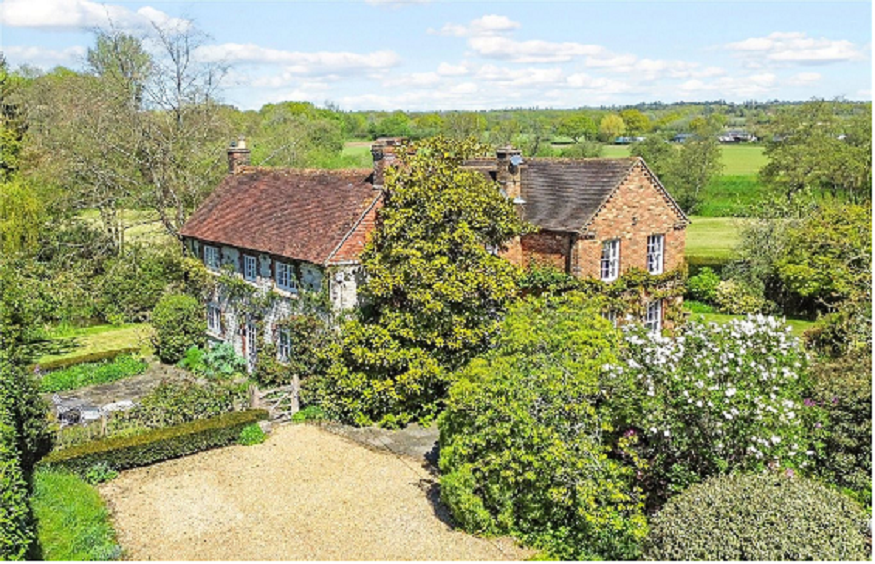Introduction
Buying a rural property is a dream for many, offering the promise of tranquillity, space, and a connection with nature that urban living often lacks. However, the process of purchasing a rural home is significantly different from buying in a city or suburban area. To ensure a smooth experience, there are several important factors to consider. In this guide, we’ll explore these considerations, drawing on the expertise of estate agents in Regent’s Park and highlighting what you need to know before making this significant investment.
Understanding the Location
One of the first things to consider when buying a rural property is the location. Unlike urban properties, rural homes are often situated in remote areas, far from the conveniences of city life. When evaluating a rural property, think about your proximity to essential services such as hospitals, schools, and grocery stores. Access to these services can significantly impact your quality of life, especially if you plan to live there full-time.
Estate Agents in Regent’s Park emphasise the importance of understanding the local community and lifestyle before purchasing. Each rural area has its own unique culture and pace of life, which may be vastly different from what you’re used to. Visiting the area multiple times, and at different times of the year, can provide a clearer picture of what to expect.
Infrastructure and Accessibility
Another critical factor is the infrastructure surrounding the property. Rural areas may lack the infrastructure that urban buyers take for granted. Consider the quality of roads leading to the property, the availability of public transportation, and the reliability of utilities such as electricity, water, and internet.
In some rural locations, properties might rely on private wells for water and septic systems for waste management. Understanding how these systems work and the maintenance they require is crucial before making a purchase.
For example, properties for sale in Regent’s Park are typically well-connected and offer modern amenities, but rural properties may require additional considerations regarding accessibility and infrastructure. Ensure that you’re comfortable with the level of isolation and the self-sufficiency required in rural living.
Land Use and Zoning Regulations
Before purchasing a rural property, it’s essential to understand the land use and zoning regulations that apply. Rural properties often come with extensive land, which can be both a benefit and a challenge. Estate Agents in Regent’s Park recommend thoroughly researching what you can and cannot do with the land.
For instance, if you plan to keep livestock, cultivate crops, or build additional structures, you’ll need to confirm that the property is zoned appropriately for these activities. Zoning laws can vary significantly from one area to another, and violating these regulations can lead to costly fines and legal issues.
Additionally, consider the environmental factors that may affect the property, such as protected wildlife habitats, wetlands, or flood zones. Understanding these aspects will help you make an informed decision and avoid future complications.
Property Condition and Maintenance
Rural properties often require more maintenance than their urban counterparts. Before buying, it’s essential to assess the condition of the property, including the land, buildings, and any additional structures like barns or sheds.
Hiring a qualified inspector who specialises in rural properties can provide insights into potential issues such as structural problems, outdated plumbing or electrical systems, and the condition of the roof and foundation. Estate Agents in Regent’s Park advise that understanding the true state of the property will help you plan for necessary repairs and ongoing maintenance costs.
For properties for sale in Regent’s Park, buyers typically expect a certain standard of upkeep, but rural properties can vary widely in their condition. Be prepared for the possibility of taking on a fixer-upper and factor in the costs of renovations and improvements.
Financing a Rural Property
Financing a rural property can be different from financing an urban home. Traditional mortgages may not always be available, especially if the property includes significant acreage or non-residential structures. Some lenders specialise in rural properties and offer loans tailored to these types of purchases.
It’s important to discuss your financing options with your bank or mortgage broker early in the process. Estate Agents in Regent’s Park often work with clients to identify lenders who understand the unique challenges of rural properties and can provide suitable financing solutions.
Resale Value and Market Trends
When buying a rural property, it’s essential to consider its future resale value. Rural markets can be less predictable than urban ones, with demand fluctuations based on economic conditions, changes in local industries, or shifts in lifestyle trends.
Property for sale in Regent’s Park often benefits from a stable and high-demand market, but rural properties can be more volatile. Research the local market trends and consult with your estate agent to understand the potential for appreciation or depreciation in the area.
Investing in a rural property with unique features or in a desirable location can help ensure that the property retains its value over time. However, be prepared for the possibility that selling a rural property may take longer than selling in a city or suburb.
Legal Considerations
Rural properties can come with unique legal considerations, such as easements, rights of way, and boundary disputes. These issues can be complex and require careful review before purchasing.
Working with an experienced real estate lawyer who understands rural property transactions is essential. They can help you navigate the legal intricacies and ensure that the property title is clear and that there are no hidden encumbrances or liabilities.
Conclusion
Buying a rural property can be a rewarding experience, offering a peaceful retreat and a chance to connect with nature. However, it requires careful planning and consideration. By working with knowledgeable professionals like Estate Agents in Regent’s Park, you can navigate the complexities of rural property purchase with confidence.
Whether you’re looking at properties for sale in Regent’s Park or exploring more remote rural options, being well-informed and prepared will help you make the best investment for your future. Remember, rural living comes with its own set of challenges, but with the right approach, it can also bring immense satisfaction and a unique quality of life.



